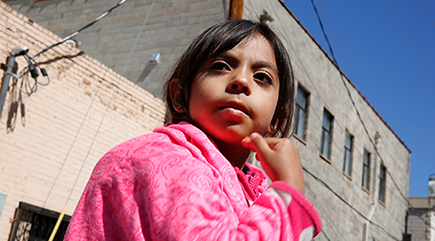
Thousands of kids try to get into the U.S. for one reason: to find a better life
Esperanza lived with Diego (not their real names) for some years and had four children. They lived with Esperanza’s mother and her sisters and some of their husbands and offspring in a house that hung to the side of the hill climbing up from the Puerto de la Libertad, where I was pastor for many years.
One of the children had a disability. More distressing was Diego’s drinking and drug problem that ruined all chances of the family bettering their life. They had no indoor plumbing, but a utility sink on the side in a porch area had water. Esperanza’s mother had been in the house a long time, and most of it was built with cement block, but she had no title to the land.
I had anointed Diego more than once because of his periodic binges. Esperanza tried to get work washing other people’s clothes, but could not find a real job in a country that has probably more than 60 percent unemployment or underemployment. Of course, there were no benefits. The family scraped by because Diego once in a while would get work and stay sober and because some cousins in the United States would send help. In El Salvador, the remesa — as the money sent by relatives and friends from abroad are called — are the biggest section of the economy.
We helped Esperanza from the parish sometimes with foodstuffs, medicine and school supplies, but she became desperate. She decided that she would go to the United States, work and send money back to her children so they could eat and go to school. Diego went on one more binge and Esperanza went to the U.S. mojada — that means without papers.
“Are you sure you want to leave your kids?” I asked her. “Your mother is getting old, the kids are going to miss their mother.”
There was no other way, padre. Her cousin in the States was arranging a way to get across the three borders involved. “Pray for me, padre, I just want what is best for my children.”
I wondered if she would make it. A good number of people don’t make the border; some of them even die. Her mother would come to church with Esperanza’s children and tell me, “No news yet.” She was so afraid for her daughter. Finally, we heard she made it. Some months later she was sending her mother money.
But she missed her kids. “What can she do, padre?” her mother asked me. “She wants her children with her.” There is no way to go legally, I told her, and it was too dangerous to send them with a coyote, the word they use for people who get you to the States without papers.
Like many Catholics around the world, they didn’t listen to their priest. I found out when the children were on the way. I have known people who died trying to get to the States. We were all wrecks waiting to hear about the two children Esperanza had sent for.
I would get news after Mass. One day the grandmother said they made it, but they had been detained. What could I do? Didn’t I know someone in the U.S. who could help? No, I didn’t know. I wanted to say, “What did I tell you?” but had learned not to take such carrion comfort.
Then we finally heard: The children were with an aunt. It was a happy ending of sorts. The government allowed the aunt to take them because their case would not come up for a long time, and she had papers. So Esperanza eventually got to be reunited with two of her children.
Esperanza worked a job Americans did not want and made more in one week than she could have in three months in El Salvador. She sent her mother money every couple weeks. The family depended on the remesa Esperanza could send. The grandmother talked to me after every Mass she attended. She didn’t hold it against me that her better life was the result of strategies I had been opposed to when they asked my opinion.
Where will it end? Or perhaps the question is when? When people don’t have the option to work and achieve financial security in a foreign land that could not be imagined in their own. When mothers stop missing their children and children their mothers. When unscrupulous people stop making money promising to deliver children safely to the arms of their relatives. When this world is a less dangerous place for little ones. When hope no longer seems to have a geographic dimension.
I watch the television news, hear irate Americans complain about an invasion and think that we are living through something like the Children’s Crusade when a collective madness seized thousands of children in Europe and they set out for the Holy Land. I remember Esperanza and imagine how she embraced her children after two years of separation. And I pray. God have mercy on us.
Msgr. Richard Antall, a former missionary in El Salvador, is the pastor at Holy Name Church in Cleveland. He is the author of “Jesus Has a Question for You” (OSV).